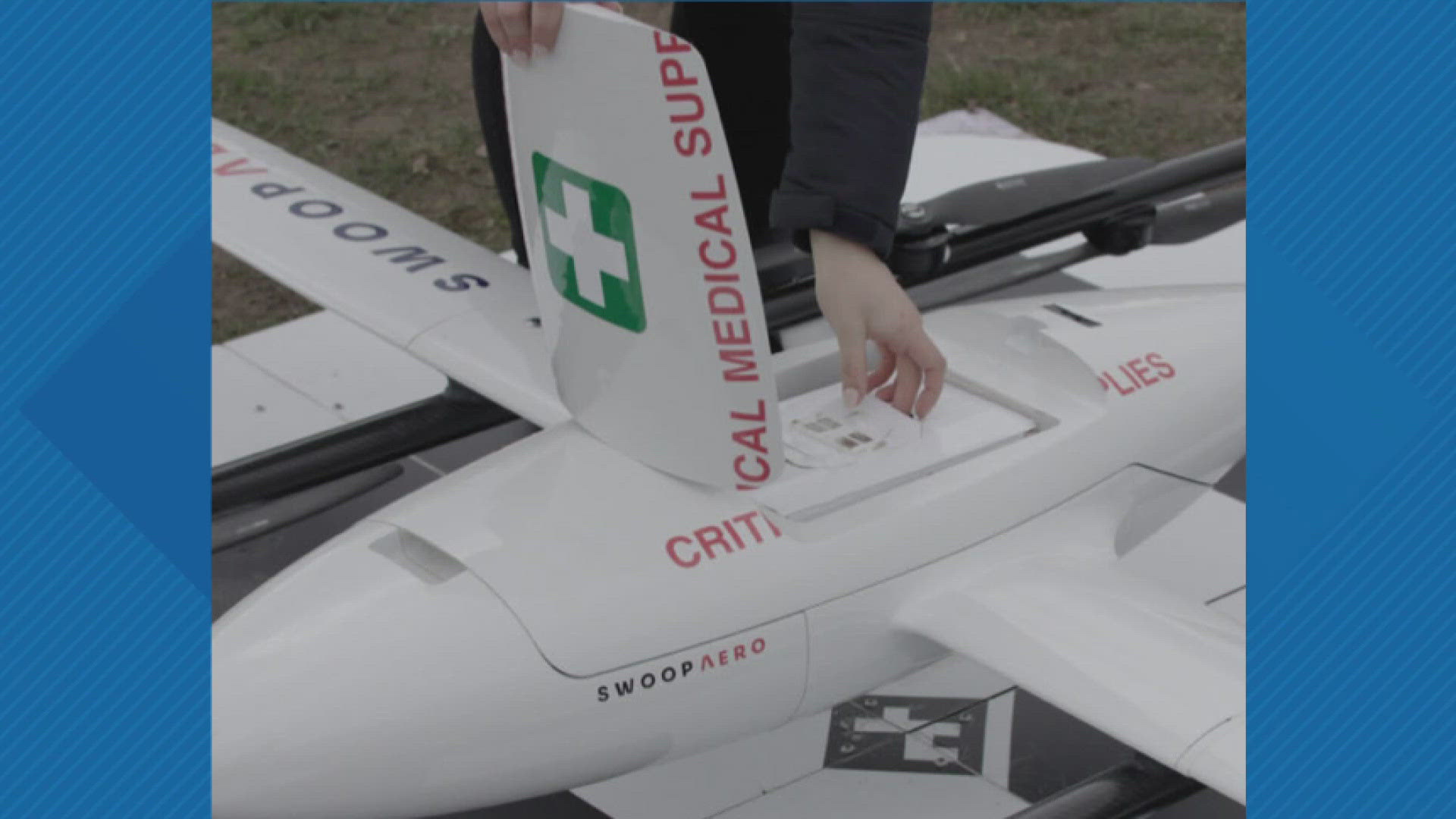ST. LOUIS — There’s a new effort to save lives in Missouri with the assistance of drones. An organ transplant company is working with the FAA to soon begin transporting blood to St. Louis, in hopes it could one day lead to drones transporting life-saving organs.
"These are beyond line-of-sight drones…These are fixed wing drones. They have an 8-foot wingspan. They weigh approximately 40 pounds,” said Kevin Lee, president of Mid-America Transplant.
Flying high, you’re starting to see them fulfilling a variety of purposes from the sky. Now, a local organ transport company is eyeing drones in its quest to save lives.
"When it comes to those who are waiting for a life-saving transplant…time is of the essence,” Lee said.
The St. Louis company collects blood samples for potential organ-donors in Springfield, Missouri twice a week. That’s where some 75-100 people donate organs ever year.
"We currently deploy a fixed wing, turbo aircraft from Spirit Airport in Chesterfield to fly down, collect the blood, and bring it back to us here in St. Louis…That's a pretty resource intense process to use an airplane to collect a 2-pound package,” Lee added.
He believes drones can be a game changer. "We want to move quickly and efficiently but also safely."
He says there's also a cost savings. Right now, transporting medical samples on an aircraft costs $10,000 roundtrip. Using drones would cost the company between $1,000-$2,000.
If the company can successfully transport blood samples from Springfield, then they have high hopes about other options.
"Could we also bring blood samples into population centers like Kansas City or Springfield or St. Louis for those who live in the rural parts of our state. If there are certain areas within the state where it's hard to receive medications, could we use these drones to deliver those medications to individuals living in remote areas of Missouri?" Lee posed. “There are currently 50 of those drones that are flying missions daily across Africa, so we know that using these drones as a delivery vehicle for blood specimens and or medications, perhaps vaccines or hard to find medications is commonly done throughout the world."
His company hopes drones can one day lead the way in transporting life-saving organs themselves.
One electric battery will allow the drone to fly 100 miles. They would only be flown over rail lines and rivers.
The company hopes to launch test flights next year. Right now, some 1,400 people in the region are awaiting organ donations.

